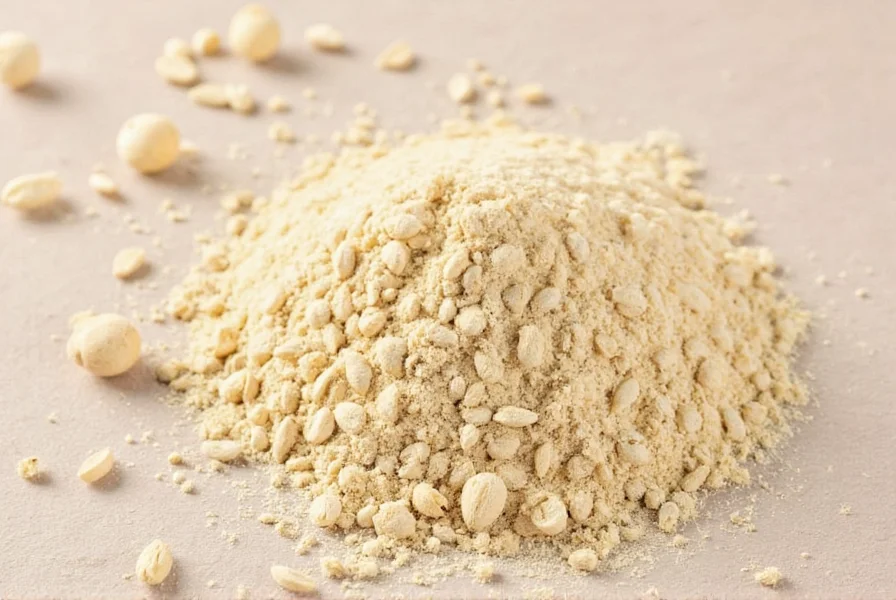Unlike black pepper, which comes from unripe green peppercorns dried in the sun, white peppercorn powder originates from ripe red peppercorns. The outer pericarp is removed through soaking in water for about a week, a process called retting, before the inner seed is dried and ground. This unique preparation gives white pepper its characteristic flavor profile that's less floral and more musty or earthy than its black counterpart.
Understanding White Peppercorn Production
The production process significantly impacts white peppercorn powder's flavor and appearance. After harvesting ripe peppercorns, producers submerge them in water tanks for 7-10 days. During this soaking period, natural enzymes break down the outer fruit layer, which is then rubbed off, leaving only the pale seed. These cleaned seeds are sun-dried until they become hard and brittle, then ground into fine powder.
This method explains why white peppercorn powder has a more subtle heat profile. The piperine compounds responsible for pepper's spiciness are concentrated in the outer layer, which gets removed during processing. The resulting powder delivers approximately 30-40% less heat than black pepper while maintaining complex flavor notes.

Culinary Applications and Flavor Profile
Chefs value white peppercorn powder for specific culinary applications where visual presentation matters. Its pale color makes it ideal for:
- Light-colored sauces like béchamel or velouté
- Seafood dishes where black specks would be undesirable
- White meat preparations including chicken and pork
- Potato salads and creamy soups
- Traditional Chinese and Vietnamese cuisine
The flavor profile differs noticeably from black pepper. White peppercorn powder offers earthy, slightly fermented notes with hints of mustiness, sometimes described as having subtle barnyard characteristics. These qualities make it particularly suitable for Asian cuisines where its distinctive flavor complements other ingredients without overwhelming them.
Nutritional Content and Health Benefits
While both white and black pepper share similar nutritional profiles, white peppercorn powder contains slightly different concentrations of beneficial compounds due to its processing method. A single teaspoon (2.3g) typically provides:
| Nutrient | Amount per Teaspoon | % Daily Value |
|---|---|---|
| Calories | 8 | 0% |
| Dietary Fiber | 0.7g | 3% |
| Manganese | 0.1mg | 4% |
| Iron | 0.3mg | 2% |
Research suggests white peppercorn powder may offer several health benefits, including improved digestion through stimulation of digestive enzymes, anti-inflammatory properties that may help reduce joint pain, and potential antioxidant effects. The compound piperine, though present in lower concentrations than in black pepper, still enhances nutrient absorption when consumed with other foods.
Storage Recommendations for Maximum Freshness
To preserve the delicate flavor of white peppercorn powder, proper storage is essential. Exposure to light, heat, and moisture rapidly degrades its quality. For best results:
- Store in an airtight container away from direct sunlight
- Keep in a cool, dark cupboard rather than near the stove
- Avoid refrigeration which introduces moisture
- Use within 6 months for optimal flavor (compared to 12 months for whole peppercorns)
Unlike whole peppercorns, which maintain flavor longer, ground white pepper loses potency more quickly due to increased surface area exposed to air. For serious culinary applications, consider grinding your own from whole white peppercorns using a dedicated spice grinder.
Substitution Guidance and Usage Tips
When substituting white peppercorn powder in recipes, understanding the flavor differences is crucial. For every 1 teaspoon of white pepper called for:
- Black pepper substitution: Use ¾ teaspoon (reduces visual speckling while maintaining heat)
- Cubeb pepper: Provides similar earthiness with floral notes
- Allspice: Offers warmth without the same level of heat
- Coriander: Creates a milder, citrus-forward alternative
Chef's tip: Add white peppercorn powder toward the end of cooking to preserve its delicate flavor compounds, which can become bitter when exposed to prolonged high heat. This technique works particularly well for finishing creamy sauces or delicate seafood preparations.

Frequently Asked Questions
What's the difference between white peppercorn powder and ground white pepper?
White peppercorn powder and ground white pepper are the same product. The terms are used interchangeably to describe the ground form of white peppercorns. Both refer to the spice made from ripe peppercorns with the outer fruit layer removed before grinding.
Can I use white peppercorn powder in place of black pepper?
Yes, you can substitute white peppercorn powder for black pepper at a 1:1 ratio, but be aware of flavor differences. White pepper has a milder, earthier taste with less floral notes and approximately 30-40% less heat. It works best in light-colored dishes where visual appearance matters, while black pepper provides more complex flavor in darker preparations.
Why do some recipes specifically call for white peppercorn powder?
Recipes specify white peppercorn powder primarily for visual reasons in light-colored dishes like cream sauces, potato salads, or white meat preparations where black specks would be undesirable. Additionally, certain culinary traditions, particularly in Chinese and Vietnamese cooking, rely on white pepper's distinctive earthy flavor profile that differs from black pepper.
Does white peppercorn powder have the same health benefits as black pepper?
White peppercorn powder offers similar but slightly reduced health benefits compared to black pepper. Both contain piperine, though white pepper has lower concentrations due to the removal of the outer fruit layer where some compounds are concentrated. White pepper still provides digestive benefits, anti-inflammatory properties, and enhances nutrient absorption, but generally to a lesser degree than black pepper.











 浙公网安备
33010002000092号
浙公网安备
33010002000092号 浙B2-20120091-4
浙B2-20120091-4